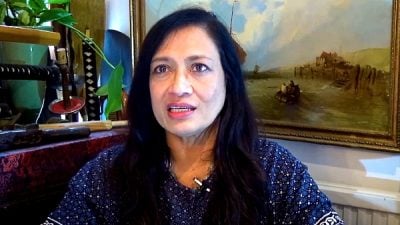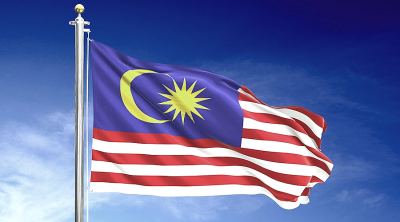
Although the women’s rights group, Sisters in Islam (SIS), had been labeled as “deviant,” many Muslim women would tend to disagree.
In their experience, SIS was their only lifeline, a place they turned to for advice, for seeking information, knowledge and refuge, especially when others were reluctant to help them, for one reason or another.
Although men and women are deemed equal in the name of Islam, in reality, that is not the experience of the majority of Malaysian Muslim women.
If the laws and practices to bring justice to women were that easily available, then SIS might not need to exist.
If only we could change our deep-rooted beliefs and put an end to discriminatory practices towards women, but these will probably take a few generations to take root, provided the intolerant conservative version of Islam does not have a firm grip on the population.
It the system was infallible and perfect and the help readily available to those who need it, then there would be no need for SIS.
In truth, SIS is probably one of the few NGOs that exists to assist both men and women, especially with respect to syariah law. Many Muslim Malaysians have had the privilege and opportunity to benefit from the help given by SIS.
The NGO provides free legal aid to those who need it most and to those who qualify for this aid. The panel of voluntary lawyers gives impartial advice to those who find that they have been discriminated against.
SIS holds talks, workshops and produces literature to keep us, the general public informed and aware of the latest developments in syariah law.
It is a valuable source of information, almost a one-stop shop for those seeking advice.
It does not give money but helps by pointing the seeker of the information in the right direction.
Although it is mostly manned by a team of volunteers, a majority of the members work with dedication and commitment and are accessible to those who seek its advice, by phone, e-mail and appointment, something which most ministers, politicians or those civil servants in the appropriate government department are unable to do.
Although many have utilized the services of SIS and possibly not all have been satisfied with the final outcome, nevertheless it is there and is an alternative body for help and information, or a place where those who are desperate can access.
The majority of people who use SIS are normally those who are faced with a problem, like those seeking clarification or solutions on divorce, custody of children, distribution of inheritance and the like.
They are victims or are vulnerable or are going through a set of problems for which SIS may be able to provide the answers. They provide an invaluable service to the public, especially the people who find they have nowhere else to turn to.
However, in July 2014, the Selangor Islamic Religious Council (JAIS) issued a fatwa which declared that SIS had deviated from Islamic teachings and had allegedly subscribed to “liberalism” and “religious pluralism”.
However, the ordinary Malaysian would find the allegations hard to digest and the terminology difficult to grasp. Many are unclear about the terms “liberalism” and “religious pluralism.”
What do they really mean? How do these manifest themselves in multicultural, multiethnic, and multifaith Malaysia?
As far as others were concerned, especially those who have benefited from SIS, this lengthy legal wrangle was merely an academic exercise in law. In their opinion, SIS had not deviated from Islamic teachings.
Finally, after a ten year wait, the Federal Court ruled in SIS’ favor on 19 June. Despite its victory SIS lamented the fact that it was declared “deviant” simply because it upheld justice and equality in Islam.
Their victory was significant because the court acknowledged that their struggle was a fundamental right as guaranteed under the Federal Constitution.
“SIS strongly believes that when a country uses Islam as a source of law, policy and practice, and the outcomes discriminate against women and violate our fundamental liberties, citizens have the right to seek judicial review.
“This case is not about Islam, but public law and public policy that must pass the test of public scrutiny.”
When the Federal Court ruled that the Selangor religious authorities were wrong to issue a fatwa declaring SIS as deviant and contrary to Islamic teachings, Na’im Moktar, the Minister in the Prime Minister’s Department (Religious Affairs) stressed the need for fatwas.
He said fatwas help to guide Muslims and that there was a need for close cooperation between the judiciary, lawmakers, and religious bodies to ensure the role and credibility of the fatwa institution.
Time and again, those in authority wish to protect the fatwa institution, but they appear to say very little about protecting the rights of the individual.
Na’im said, “I would like to emphasize that fatwas continue to play a vital role in guiding Muslims on current issues which require syariah-based direction.”
If Na’im is serious about protecting Muslims, why has no-one issued a fatwa against the endemic corruption in our society, especially among the elite, the powerful politicians, their business acquaintances, the politicians’ family members, and their cronies.
The lack of a fatwa for corruption sends the wrong message to the public. Na’im should focus on this, and leave SIS alone to continue its good work helping the vulnerable.
(Mariam Mokhtar is a Freelance Writer.)
ADVERTISEMENT
ADVERTISEMENT








































